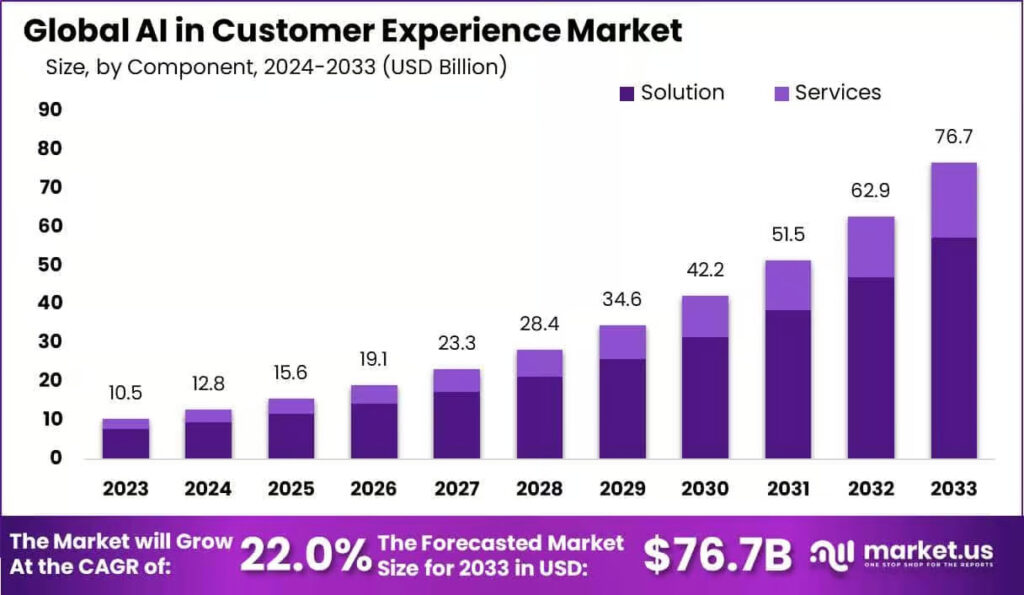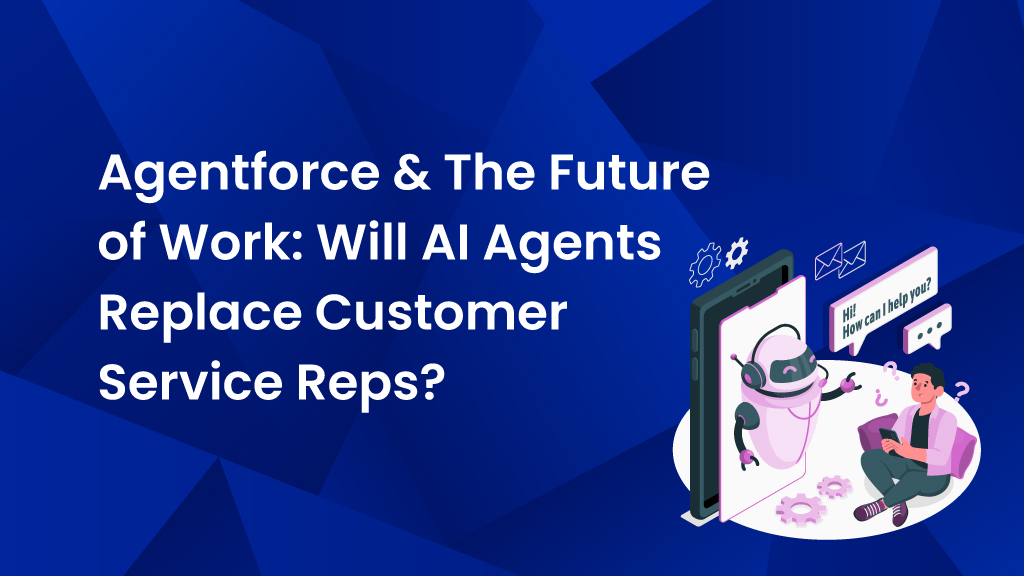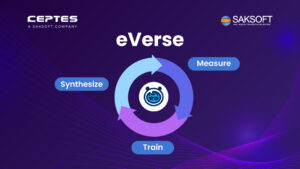As businesses increasingly embrace digital transformation, the role of customer service is evolving at an unprecedented pace. With the advent of AI agents and autonomous AI agents, companies are rethinking how they engage with customers. Let’s dive deep into this blog and explore the implications of these technologies, particularly focusing on Salesforce Agentforce, ai in customer support and ponders whether AI will ultimately replace human customer service representatives, and the overall ai impact on jobs.
Understanding the Waves of Autonomy

The rise of AI in customer service is not just a trend; it represents a fundamental shift in how businesses operate. According to a report by market.us, the global AI in customer experience market is projected to reach approximately USD 76.7 billion by 2033, up from USD 10.5 billion in 2023, with an expected compound annual growth rate (CAGR) of 22.0% between 2024 and 2033.
Key Developments in AI Agents:
- Automation of Routine Tasks: AI agents can handle repetitive inquiries, allowing human representatives to focus on more complex issues. This shift of customer service automation enhances operational efficiency and improves service quality by emphasizing the human touch where it’s needed most.
- Proactive Engagement: With advancements in predictive analytics, businesses can anticipate customer needs before they arise. This proactive approach fosters loyalty and enhances customer satisfaction.
- Agentic AI: Unlike traditional AI, Agentic AI can take autonomous actions aligned with specific goals, enabling it to manage complex customer requests without human intervention. This capability positions AI as a powerful tool for enhancing customer interactions.
General Roadblocks and Ethical Obligations
Despite the promising future of AI agents, several challenges must be addressed:
- Data Privacy Concerns: The use of AI in customer service raises valid privacy issues. Companies must implement ethical AI practices to protect consumer data while providing personalized experiences.
- Bias and Accuracy Issues: AI systems can perpetuate biases present in their training data, leading to inaccurate or harmful responses. Ensuring that AI tools are trained on diverse and representative datasets is crucial for maintaining trust and reliability.
- Human Oversight: While AI can automate many tasks, it cannot entirely replace the need for human oversight. Complex emotional interactions still require the empathy and understanding that only humans can provide.
Humans + AI Agents = The Best Bet!
The future of customer service lies not in choosing between humans or AI but in leveraging their strengths collaboratively:
- Enhanced Customer Experience: By allowing AI agents to manage routine inquiries, human representatives can dedicate their efforts to high-value interactions that require emotional intelligence.
- Increased Efficiency: Automation through AI reduces the volume of calls and inquiries requiring human intervention, allowing organizations to optimize their resources effectively.
- Continuous Learning: Human agents play a critical role in training and refining AI systems. Their insights help improve the accuracy and effectiveness of AI responses over time.
What Does the Road Ahead Look Like?
As we look towards the future, several trends are likely to shape the landscape of customer service:
- Integration of Advanced Technologies: Businesses will increasingly adopt technologies such as natural language processing (NLP) and machine learning to enhance the capabilities of their AI agents.
- Hybrid Models: The collaboration between human agents and AI will define successful customer service strategies. Companies will need to establish clear roles for both to maximize efficiency while ensuring quality interactions.
- Focus on Personalization: As customers demand more personalized experiences, businesses will leverage data-driven insights from AI to tailor their services accordingly.
Wrap-up
The integration of AI agents into customer service represents a transformative opportunity for businesses. While concerns regarding job displacement and ai replacing customer service exist, the reality is that these technologies will augment human capabilities rather than replace them. By embracing a hybrid model where humans and AI work together, organizations can enhance operational efficiency while delivering exceptional customer experiences.
As we navigate this evolving landscape, it is crucial for businesses to prioritize ethical considerations and ensure that their use of technology aligns with consumer expectations. The future of work with AI is not just about automation; it’s about creating a synergistic environment where both humans and machines thrive together.
Are you ready to explore how Agentforce can elevate your customer service strategy? Join us in embracing the future of work with AI!
FAQ:
1. What is Agentforce, and how does it enhance customer service?
2. Will AI agents replace human customer service representatives?
3. How can businesses ensure ethical AI practices in customer service?
4. What are the key benefits of integrating AI into customer service?
5. What does the future of AI in customer service look like?

Nilamani Das
Nilamani is a thought leader who champions the integration of AI, Data, CRM and Trust to craft impactful marketing strategies. He carries 25+ years of expertise in the technology industry with expertise in Go-to-Market Strategy, Marketing, Digital Transformation, Vision Development and Business Innovation.


















